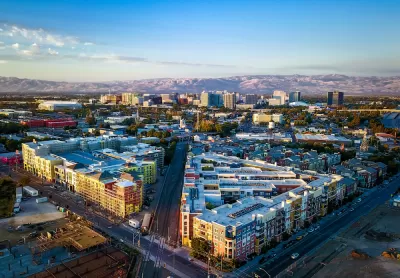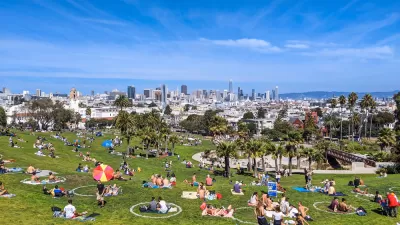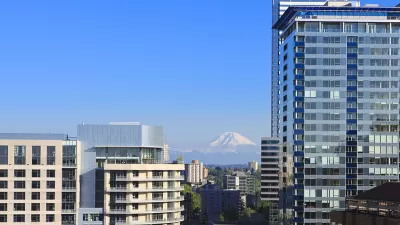Many of the tech employees who left Silicon Valley during the pandemic are making their way back to the Bay Area–and so are higher rents.

In spite of predictions of "a great tech diaspora," writes Kellen Browning in the New York Times, tech workers who moved away during the pandemic are starting to return to San Francisco and Silicon Valley. "Bumper-to-bumper traffic has returned to the region’s bridges and freeways. Tech commuter buses are reappearing on the roads. Rents are spiking, especially in San Francisco neighborhoods where tech employees often live."
Twitter, "one of the first big tech companies to welcome more than skeleton crews of employees back to the workplace," reopened its San Francisco office last week. "No one is quite ready to declare that things have returned to normal. Ridership on Bay Area Rapid Transit remains low, and nearly half of San Francisco’s small businesses are still closed. Office vacancy rates are high. The city’s downtown is still largely empty on weekdays."
Yet rents in neighborhoods popular with tech workers and median home sale costs are rising after dropping sharply in 2020. Meanwhile, "[n]early 1.4 million cars drove across the Golden Gate Bridge into San Francisco in May, the most since February 2020, and afternoon freeway speeds have dropped to about 30 miles per hour, which was the prepandemic norm, according to city data." And even companies who moved their headquarters away from Silicon Valley, like Oracle and Hewlett-Packard Enterprise, are letting their employees stay in the Bay Area.
Workers that did move away mostly stayed within California, and many are ready to move back. Although most employees want to continue working from home at least part of the time, "many who prefer to work remotely will do so from nearby." It appears that, despite high housing costs, pollution, and other issues, people keep coming back to the urban amenities that make cities exciting places to live and work.
FULL STORY: Tech Workers Who Swore Off the Bay Area Are Coming Back

Planetizen Federal Action Tracker
A weekly monitor of how Trump’s orders and actions are impacting planners and planning in America.

Maui's Vacation Rental Debate Turns Ugly
Verbal attacks, misinformation campaigns and fistfights plague a high-stakes debate to convert thousands of vacation rentals into long-term housing.

San Francisco Suspends Traffic Calming Amidst Record Deaths
Citing “a challenging fiscal landscape,” the city will cease the program on the heels of 42 traffic deaths, including 24 pedestrians.

Amtrak Rolls Out New Orleans to Alabama “Mardi Gras” Train
The new service will operate morning and evening departures between Mobile and New Orleans.

The Subversive Car-Free Guide to Trump's Great American Road Trip
Car-free ways to access Chicagoland’s best tourist attractions.

San Antonio and Austin are Fusing Into one Massive Megaregion
The region spanning the two central Texas cities is growing fast, posing challenges for local infrastructure and water supplies.
Urban Design for Planners 1: Software Tools
This six-course series explores essential urban design concepts using open source software and equips planners with the tools they need to participate fully in the urban design process.
Planning for Universal Design
Learn the tools for implementing Universal Design in planning regulations.
Heyer Gruel & Associates PA
JM Goldson LLC
Custer County Colorado
City of Camden Redevelopment Agency
City of Astoria
Transportation Research & Education Center (TREC) at Portland State University
Jefferson Parish Government
Camden Redevelopment Agency
City of Claremont




























